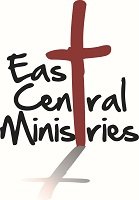General FAQs
-
We focus on the International District, which is located in the east central region of Albuquerque. Naming our organization after the area where we work defines us in a geographic sense and ties our identity as an organization to our community.
-
Here’s the short version: In 1999, John, our Executive Director, began building relationships with residents of the International District, exploring ways in which the church could be more active in helping people who struggle in poverty.
-
We start by building relationships with the neighborhood where we work. Then we partner with them to design programs that meet their needs. You can learn more about our programs and activities by clicking on the navigation tabs.
-
We envision a community that cultivates and demonstrates God’s shalom. In other words, we aspire to be part of a community where there is wholeness, harmony, growth, and creativity. For us, this kind of community includes adequate housing, care for the environment, kids and education, business and job creation, and spiritual, physical, and emotional health. While our programs seem different, they are designed to complement each other in working towards that holistic vision.
-
Demographically speaking, most of our community members are of Hispanic/Latino descent, Spanish-speaking (both Low English Proficiency (LEP) and bilingual), and low-income, living with their families in rented homes or apartments. However, we welcome anyone who comes to our door, and are inclusive of everyone.
-
Most broadly, we are followers of Christ who try to the best of ability to live our lives according to Jesus' teachings of justice and compassion. We're a big mix of traditions and faith journeys. We're not a church with worship services and classes, because there are already many churches in our neighborhood. Instead, we wanted to help build bridges between those churches and the neighborhood.
-
Christian community development is a philosophy of holistic neighborhood revitalization that has inspired much of our work and approach to ministry. It is founded on eight core principles: relocation, reconciliation, redistribution, leadership development, listening to the community, church-based, wholistic, and empowerment. The Christian Community Development Association (CCDA), founded by John Perkins, who articulated much of the philosophy of CCD, is a great resource for learning more about this approach to ministry. CCDA’s main website is www.ccda.org
Community Programs FAQs
-
Unlike traditional food pantries and soup kitchens, where people usually come for immediate food assistance and then leave, our food co-op aims to create a sense of community and ownership among the receiving families. Our food co-op is a membership-based program, in which members come the same time each week to run the program. Once the food donations are delivered to our warehouse, the members take charge of setting it out, dividing it up, and cleaning up. They pray, chat, and share about their lives with each other, while their kids play on our Creation Park equipment. The participants then give their time in service to this ministry, affirming that they have something to offer.
-
We sometimes have leftovers from the co-op, which we can distribute as the need arises. However, our co-op is not primarily designed to respond to immediate, one-time food needs, but rather provide a system for food security.
-
We run pre-school cooperative a homework club during the school year. Please contact Itzel at kids@eastcentralministries.org if you are interested in more information.
-
No, unfortunately we do not offer these services.
Urban Farm FAQs
-
East Central Ministries is the umbrella organization, and Growing Awareness is one of our programs. Growing Awareness complements our other programs by financially supporting our ministry, helping us educate the community about environmental stewardship, and building relationships with the greater Albuquerque community.
-
No, we don't grow produce. Instead, we grow seedling plants for people to plant in their own gardens. Learn more about our plants here. We also raise chickens and produce ollas, or clay irrigation pots.
-
All of our products are available for sale at our main office seasonally in April and May. See the Growing Awareness tab for more details.
-
Ollas, pronounced "Oy-yah" are clay irrigation pots. They are an indigenous irrigation technique, in which the olla is buried in the ground so water can seep slowly through the clay to the roots of plants.


